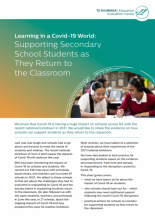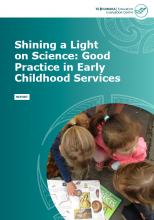Learning in a Covid-19 World: Supporting Secondary School Students as They Return to the Classroom
This short report, aimed at secondary school leaders, sets out how prepared students and schools felt ahead of the Covid-19 lockdown in August and provides recommendations for how schools can support their students as they return to the classroom.











